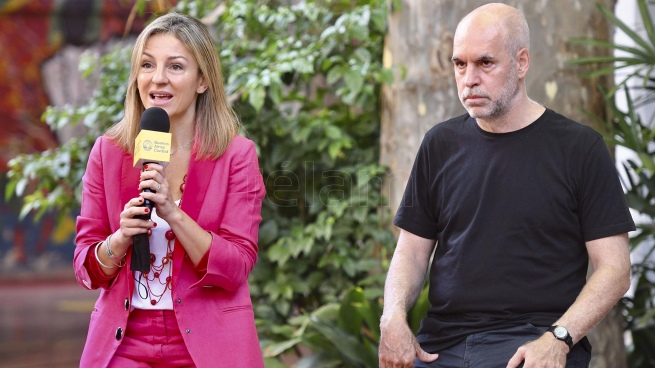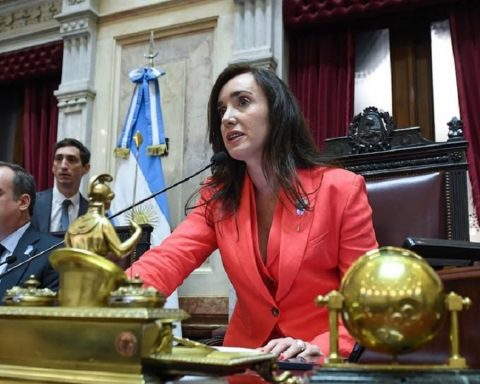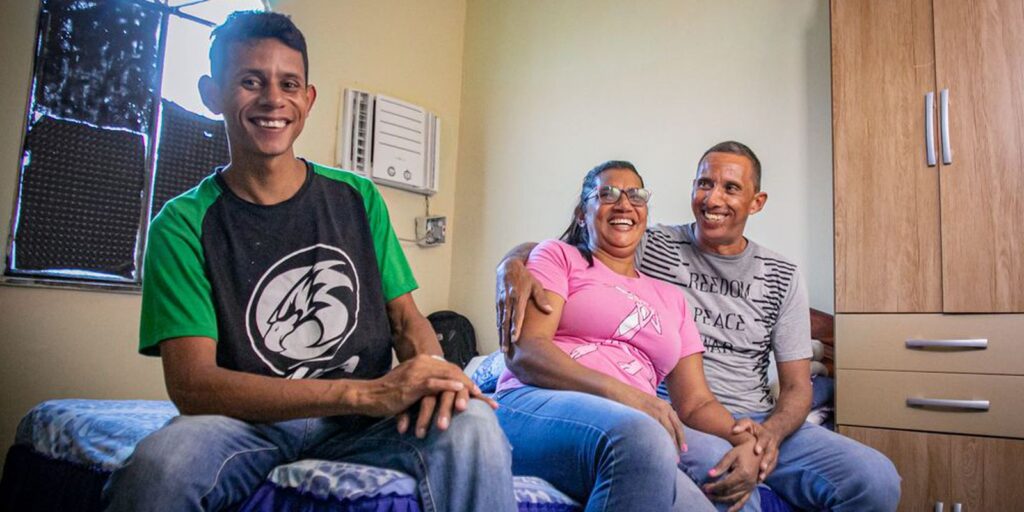
Opposition leaders and social leaders from Buenos Aires attributed the announcement by the head of government Horacio Rodríguez Larreta to remove social plans from families who do not send their children to school in search of “electorally positioning themselves” for 2023, in an attempt for “nationalizing his figure” and “standing to the right” of the political arch, “pressured by the internal of Together for Change”.
In turn, the Buenos Aires administration justified the measure in the need to keep children in school in the face of high rates of absenteeism and because “it is the great social equalizer”; nevertheless, The decision, according to data accessed by Télam, is part of a list that the Larretista girl table manages to generate political impact based on current issues, in this case economic aid to popular sectors.
The Ciudadanía Porteña program, which is at the beginning of this discussion, began to be implemented in 2005 and contemplates the direct transfer of income to households living in poverty and indigence in the City of Buenos Aires, through a preloaded purchase card to be used in a network of affiliated businesses.
“It has to do with positioning itself electorally and staying on the agenda more and more, responding to conservative sectors of society, in their attempt to nationalize themselves as a figure for the 2023 elections”Mary Bielli
At present, it reaches more than 40,000 households, while the additional for schooling – which the Buenos Aires Government has targeted – provides amounts ranging from $5,200 to $7,800 and covers some 23,000 students under 18 years of age, who With this measure, they must have 85% school attendance per two months in order not to lose social assistance.
In dialogue with Télam, the legislator of the Front of All and vice president of the Education Commission of the body, María Bielli considered that this week’s announcement is linked “more to an electoral objective that Larreta has, to preserve a certain vote of the most conservative right, than to what is actually going to translate into public policy.”
“It has to do with positioning itself electorally and staying on the agenda more and more, responding to conservative sectors of society, in their attempt to nationalize themselves as a figure for the 2023 elections,” he assured, adding that the bet of the head of government It responds “to a common sense that has been building at a social level regarding what plans are used for and the role of organizations, which is quite dangerous.”
Regarding the Buenos Aires social program put under the magnifying glass, Bielli warned of a drop in investment in the area since 2017, which went from 2.5% to 0.54% of the total resources proposed in the local budget; while he criticized the stagnation in the number of households accessing the plan.
“There are more than 200,000 households below the poverty line in the City, but the figure of 40,000 has been maintained for several years and did not grow even in a pandemic, when the Buenos Aires government locked up the entrance while the national government built tools to give income to those who have less”, he compared.
As of April 2022, some 41,792 households received the Ciudadanía Porteña plan, while another 130,538 were reached by the Universal Allocation for Daughter and Son (AUH), distributed by the national government in CABA, with an amount of around $800,449,000, sources from the federal administration specified.
“It’s something that Larreta has accustomed us to, who needs to stand to the right, a product of the Together for Change intern”Raphael Klejzer
Both programs are incompatible, that is, families receiving one of the benefits cannot apply for the other; however, until this week they agreed on most of the requirements necessary to access the additional for schooling, related to the accreditation of the attendance of students to schools and the presentation of the regular student certificate once a year.
Rafael Klejzer, director of Integrative Policies of the Ministry of Social Development of the Nation and referent of the Popular Movement La Dignidad and the Union of Workers of the Popular Economy (Utep), criticized the decision of the Buenos Aires government to “propose a punitivism with the removal of social plans instead of problematizing the causes for which girls and boys do not go to school”.
“In this way, the lack of vacancies and state support is removed from the axis,” he evaluated and maintained that the official measure “It’s something that Larreta has accustomed us to, who needs to stand to the right, a product of the Together for Change intern”in which leaders of the opposition alliance fight for a presidential candidacy with a view to the 2023 elections.
For the leader, Larreta “is worried about (Patricia) Bullrich and, based on that, he sets up his management, but everything related to the audits of social plans is very tribune. I think it has no basis and it is illegal because it takes an acquired right.
In the same vein, Walter Córdoba, a reference for Somos Barrios de Pie in CABA, said that “the announcement stigmatizes the popular sectors and only seeks political gain.”
“It’s pure marketing because he wants to bring into the debate the issue of auditing the social plans to capitalize on the discontent on the part of society based on the discourse that is being installed against the popular sectors,” Córdoba remarked, noting that “it is an electoral horse” of the head of Buenos Aires government “with a view to next year”.
Nevertheless, The accusations against the leader of Together for Change of launching this type of measure to support his presidential candidacy for next year do not prevent the “small table” of the Buenos Aires administration from meeting to analyze “impact” resolutions that install Larreta as a figure with national projectionbeyond the limits of CABA, according to local sources.
“It is pure marketing because it wants to introduce the issue of auditing social plans into the debate to capitalize on the discontent on the part of society based on the discourse that is being installed against the popular sectors”Walter Cordoba
In those meetings headed by the head of government, which take place at the headquarters of the Buenos Aires Executive in the neighborhood of Parque Patricios, the chief of staff Felipe Miguel participates; the Secretary of Communication, Federico Di Benedetto; and that of the Media, Christian Coelho, in addition to the minister of the area on which the proposed measures will revolve.
In the case of Ciudadanía Porteña and its review every two months depending on the attendance at school, the head of the educational portfolio, Soledad Acuña, and her counterpart from Human Development and Habitat, María Migliore, coordinated the implementation of the measure that It has been in force since August 1, but it will begin to be applied effectively from next October, sources from the Buenos Aires government explained to Télam.
“The best place where a child can be is at school, which is the great social equalizer. For this reason, we work every day to align incentives between the different government policies, and continue building a social policy that is increasingly efficient and transformative, that guarantees food coverage and that at the same time is a real boost to the schooling of boys,” they pointed out.
And they added that “Children have to be in school and social policy is a tool to achieve it. With this measure we seek to take a new step on this path”.


















